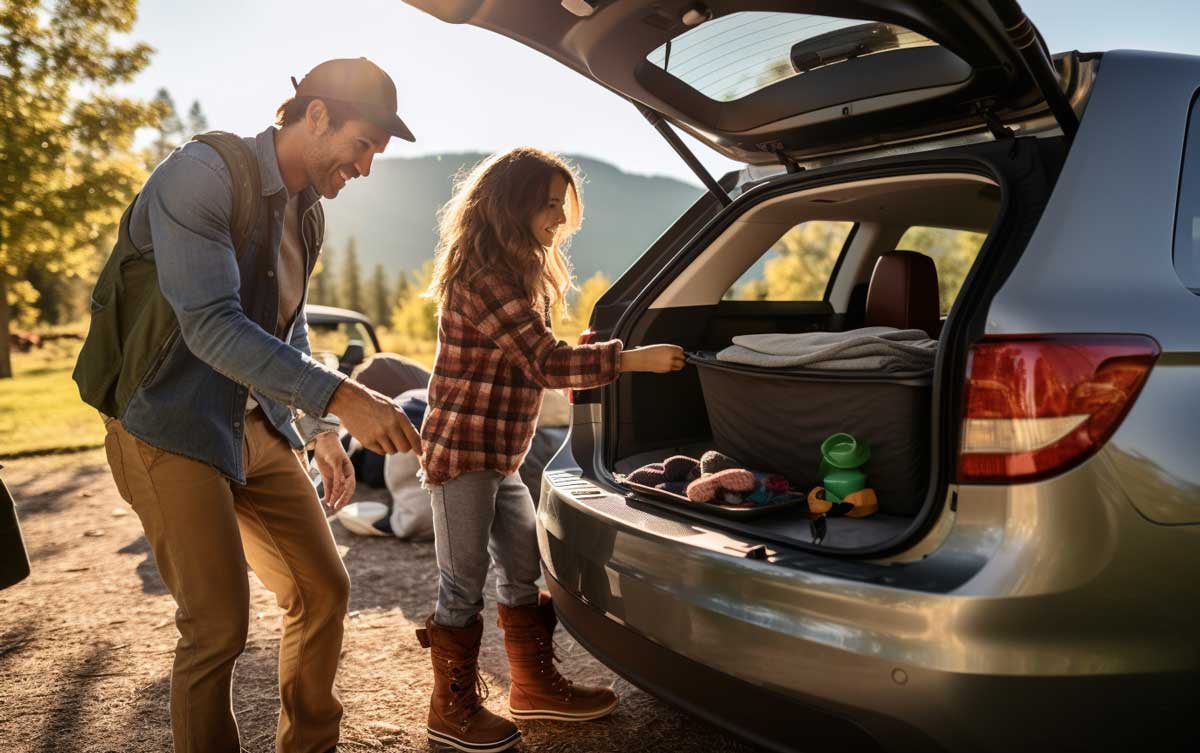Turo, a peer-to-peer car rental service, has revolutionized the way many people rent vehicles. But with this innovative approach comes responsibilities for both the car owner and the renter. One of the most pressing concerns for renters is the potential financial repercussions if they damage a vehicle and fail to pay for it. Let's delve deep into the consequences and the importance of understanding your responsibilities when using Turo.
Find out what happens if you don't pay Turo damage. From understanding the types of claims that may arise to tips for avoiding them, this comprehensive guide ensures both hosts and guests navigate Turo with confidence and clarity.
The Immediate Aftermath Of Damage
When you rent a car through Turo and unfortunately cause damage, the platform's insurance policy usually covers the repairs. However, there's often a deductible that the renter is responsible for. This deductible can range from a few hundred to a few thousand dollars, depending on the insurance plan chosen at the time of rental.
The Financial Implications
If a renter decides not to pay the deductible or any other fees associated with the damage, they're setting themselves up for significant financial consequences. Turo can charge the renter's credit card for the deductible and any additional fees. If the card doesn't have sufficient funds, the account could go into the negative, leading to overdraft fees and potential credit score implications.
Collections And Credit Score Impact
Should a renter continue to avoid payment, Turo has the right to send the outstanding balance to collections. Once a debt is in collections, it can severely impact one's credit score. A low credit score can affect future loan approvals, interest rates, and even job opportunities in some sectors.
Legal Repercussions
Beyond the financial implications, there are potential legal consequences for not paying for Turo damage. Turo can take legal action against the renter to recover the owed amount. This could result in court appearances, legal fees, and potential wage garnishments.
The Importance Of Communication
If a renter finds themselves unable to pay the deductible immediately, it's crucial to communicate with Turo and the car owner. In many cases, they might be willing to work out a payment plan or find another solution that doesn't involve legal action or sending the debt to collections.
Protecting Yourself As A Renter
To avoid finding oneself in a challenging situation, renters should:
-
Thoroughly inspect the vehicle before and after the rental period.
-
Take photos of the car from multiple angles to have a record of its condition.
-
Opt for insurance that has a deductible within their budget.
-
Drive responsibly to minimize the risk of damage.
What Can Be Constituted As Turo Damage
Turo damage isn't just limited to a significant dent or a broken window. It encompasses:
-
Minor Scratches And Dings: Even the smallest scratch can be considered damage if it wasn't there before the rental period.
-
Interior Damage: This includes stains, tears, or burns on the seats, carpets, or other interior components.
-
Mechanical Damage: If the car starts behaving differently after your rental, and it's traced back to something you did, that's damage.
-
Lost Or Broken Accessories: This includes GPS devices, car chargers, or any other accessory that came with the car.
What Is Physical Damage Insurance?
Physical Damage Insurance is coverage that protects the renter from bearing the full cost of repairs or replacements if the rented vehicle gets damaged during the rental period. This insurance typically covers:
-
Collision: Damage to the rented vehicle due to an accident with another vehicle or object.
-
Comprehensive: Damage to the rented vehicle from non-collision related incidents, such as theft, vandalism, or natural disasters.
It's essential to note that while Physical Damage Insurance can significantly reduce out-of-pocket expenses, there's often a deductible involved.
Understanding The Basics Of Turo
Turo operates differently from traditional car rental services. Here's what you need to know:
-
Peer-To-Peer Model: Individuals list their cars for rent, meaning you have a wider variety of vehicles to choose from.
-
Flexible Pricing: Car owners set their prices, leading to competitive rates and unique deals.
-
Review System: Both renters and car owners can leave reviews, ensuring transparency and trustworthiness.
What Happens If You Don’t Pay For Vehicle Damage?
If a renter decides not to pay the deductible or any other fees associated with the damage:
-
Immediate Charge: Turo can charge the renter's credit card for the deductible and any additional fees.
-
Debt Collection: If the payment isn't made, Turo has the right to send the outstanding balance to collections, impacting one's credit score.
-
Legal Action: Turo can take legal action against the renter to recover the owed amount.
What Are The Penalties For Not Paying For Damage?
Beyond the immediate financial implications:
-
Credit Score Impact: Once a debt is in collections, it can severely impact one's credit score.
-
Legal Repercussions: This could result in court appearances, legal fees, and potential wage garnishments.
-
Turo Account Suspension: Turo may suspend or terminate the renter's account, preventing them from using the service in the future.
Is There A Way To Avoid Paying For Damage?
While accidents happen, there are ways to minimize or avoid the financial repercussions:
-
Opt For A Lower Deductible Insurance: This means you'll pay a higher premium upfront, but if there's damage, your out-of-pocket expense will be less.
-
Drive Cautiously: The best way to avoid damage charges is to return the car in the same condition you received it.
-
Document Everything: Take photos before and after your rental to have evidence in case of a dispute.
Understanding What Happens If You Don't Pay Turo Damage
Turo, the peer-to-peer car rental service, has transformed the car rental landscape. As with any service, understanding the intricacies of their policies, especially regarding damages, is crucial for both car owners and renters. This comprehensive guide will shed light on the various aspects of Turo's damage policies and related topics.
What Types Of Physical Damage Does Turo Cover?
Turo's insurance policy is designed to provide peace of mind to both hosts and guests. Here's a breakdown of the types of damages covered:
Mechanical Damage
While Turo primarily covers external damages, mechanical damages caused by the guest's misuse are also covered. This includes engine problems due to wrong fuel type, transmission issues from aggressive driving, or brake failures from misuse.
Pre-Existing Damage
It's essential for guests to document the car's condition before starting their trip. Turo does not cover damages that existed before the rental period. Always ensure you take clear photos before and after your trip to avoid disputes.
Eligible Damage Claims
Not all damages are eligible for claims. Eligible damages include significant dents, scratches longer than 3 inches, window cracks, and any other damage that affects the car's functionality or aesthetics.
Rental Car Company And Guest Protection Plans: How Do They Work?
Turo offers various protection plans for guests to choose from, each with its own set of coverages, exclusions, and deductibles.
Pocket Maximums And Other Costs
Each protection plan has a "pocket maximum" or a cap on the amount a guest might have to pay out-of-pocket in the event of a claim. This includes the deductible and any additional costs up to the pocket maximum.
Financial Responsibility & Insurance Coverage
Guests are always responsible for damages up to the amount of their chosen deductible. However, if a guest has personal car insurance, that policy might cover the damages, with Turo's insurance acting as secondary.
Security Deposits & Rental Agreements
Some hosts may require a security deposit, especially for high-value cars. This deposit can be used to cover damages if necessary. Always read the rental agreement carefully to understand your responsibilities and rights.
Claims Process And Reimbursement Options
If an unfortunate event occurs and you need to file a claim, understanding the process can make it less daunting:
-
Report The Damage: Always report any damage to the host and Turo as soon as possible.
-
Documentation: Submit clear photos of the damage, any pre-existing damage, and any other relevant documentation.
-
Evaluation: Turo will evaluate the claim, determine the repair costs, and decide on the reimbursement amount.
-
Reimbursement: Depending on the protection plan chosen and the deductible amount, Turo will reimburse the host for the damages. The guest might have to pay a portion, depending on the circumstances.
Types Of Claims That May Arise
When using Turo, several scenarios might lead to a claim:
Collision Claims
These are the most common and arise when the rented vehicle is involved in an accident with another vehicle or object.
Comprehensive Claims
These claims cover non-collision related damages, such as theft, vandalism, or damages from natural disasters like floods or fires.
Liability Claims
If a guest injures someone or damages someone else's property while driving the rented vehicle, a liability claim may arise.
Loss Of Use Claims
If a car is damaged and cannot be rented out while it's being repaired, the host can file a 'loss of use' claim to recoup potential lost earnings.
Importance Of Paying A Claim Promptly
Prompt payment of a claim is crucial for several reasons:
-
Maintaining A Good Reputation: On Turo, both hosts and guests can review each other. Settling claims promptly can help maintain a positive rating.
-
Avoiding Additional Fees: Delays can lead to added interest or late fees, increasing the overall amount owed.
-
Preventing Legal Action: Unsettled claims can escalate to legal proceedings, leading to added stress and potential legal fees.
How Turo Claims Work
The Turo claims process is designed to be transparent and fair:
-
Initiation: The host or guest reports the damage to Turo.
-
Documentation: Clear photos, police reports, and other relevant documents are submitted.
-
Assessment: Turo evaluates the claim, verifies the details, and determines the repair costs.
-
Resolution: Turo communicates the decision, and the necessary payments or reimbursements are processed.
Tips For Avoiding Turo Claims
While accidents happen, some best practices can minimize the risk of claims:
-
Thorough Inspection: Always inspect the vehicle before and after the rental period. Document any pre-existing damage with photos.
-
Drive Safely: Adhere to traffic rules and avoid aggressive driving.
-
Secure the Vehicle: When not in use, ensure the vehicle is parked in a safe location and locked.
-
Stay Informed: Familiarize yourself with Turo's policies and the terms of your rental agreement.
What To Do If You Cannot Pay A Turo Claim
If you find yourself unable to settle a Turo claim:
-
Communicate: Reach out to Turo and the host. They might be willing to work out a payment plan or find an alternative solution.
-
Review Your Personal Insurance: Your personal car insurance might cover some of the damages. Check with your provider.
-
Seek Legal Advice: If the claim amount is substantial and you believe it's unjust, consider consulting with a legal professional.
Frequently Asked Questions
To offer a better understanding of what happens if you don't pay Turo damage, we have answered some of the more commonly asked questions.
What should I do immediately after noticing damage to a Turo vehicle?
Immediately document the damage with clear photos and notify both the host and Turo. It's essential to report any damage as soon as possible to ensure a smooth claims process.
Does my personal car insurance cover damages to a Turo rental?
While Turo offers its own protection plans, your personal car insurance might cover some damages. It's crucial to check with your insurance provider to understand the extent of the coverage.
How long does the Turo claims process typically take?
The duration of the claims process can vary based on the complexity of the claim and the provided documentation. However, Turo aims to resolve claims as quickly and efficiently as possible, typically within a few weeks.
Are there any penalties for not paying a Turo claim promptly?
Yes, delays in settling a claim can lead to added interest, late fees, a negative rating on your Turo profile, and potential legal action.
Can I dispute a Turo claim if I disagree with the assessment?
Yes, if you believe a claim is unjust or the assessed damage cost is too high, you can dispute it. It's advisable to provide supporting evidence and, if necessary, seek legal advice.
What happens if the damage is due to a pre-existing condition not caused by me?
Always document the vehicle's condition before starting your trip. If the damage was pre-existing, and you have evidence, you won't be held responsible for that particular damage.
Understanding Turo’s Damage Claim
Turo offers a unique car rental experience, blending flexibility with responsibility. By understanding Find out what happens if you don't pay Turo damage, the intricacies of Turo's claim policies and being proactive, both hosts and guests can ensure a seamless and enjoyable experience on the platform.
Find out more about the automotive industry by checking out our guide on when Turo charges your card. Visit Keep Driving to learn more.







